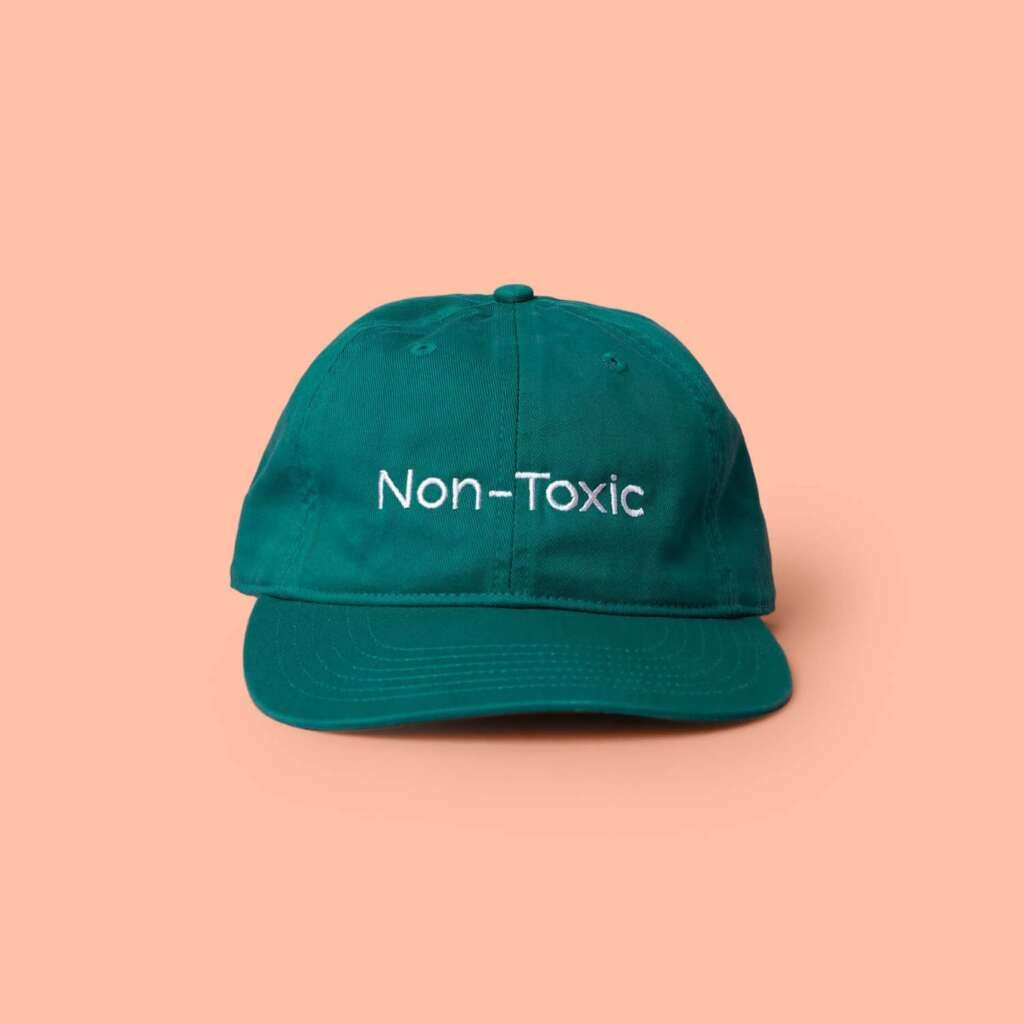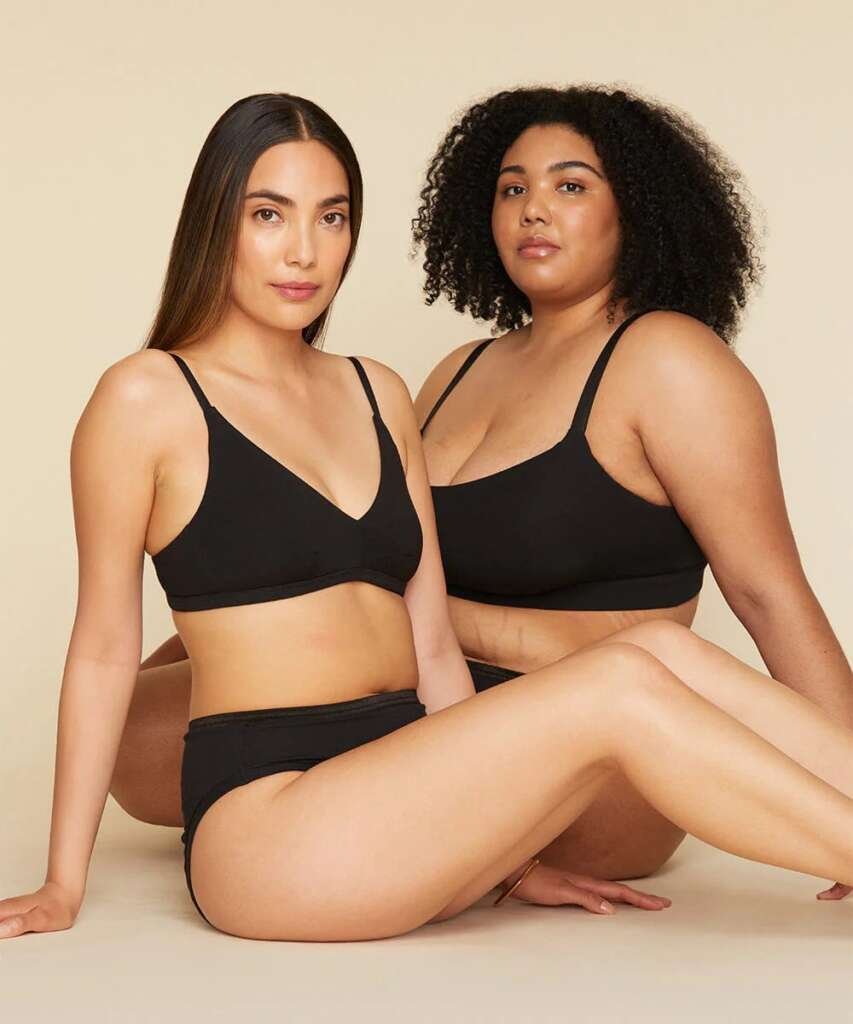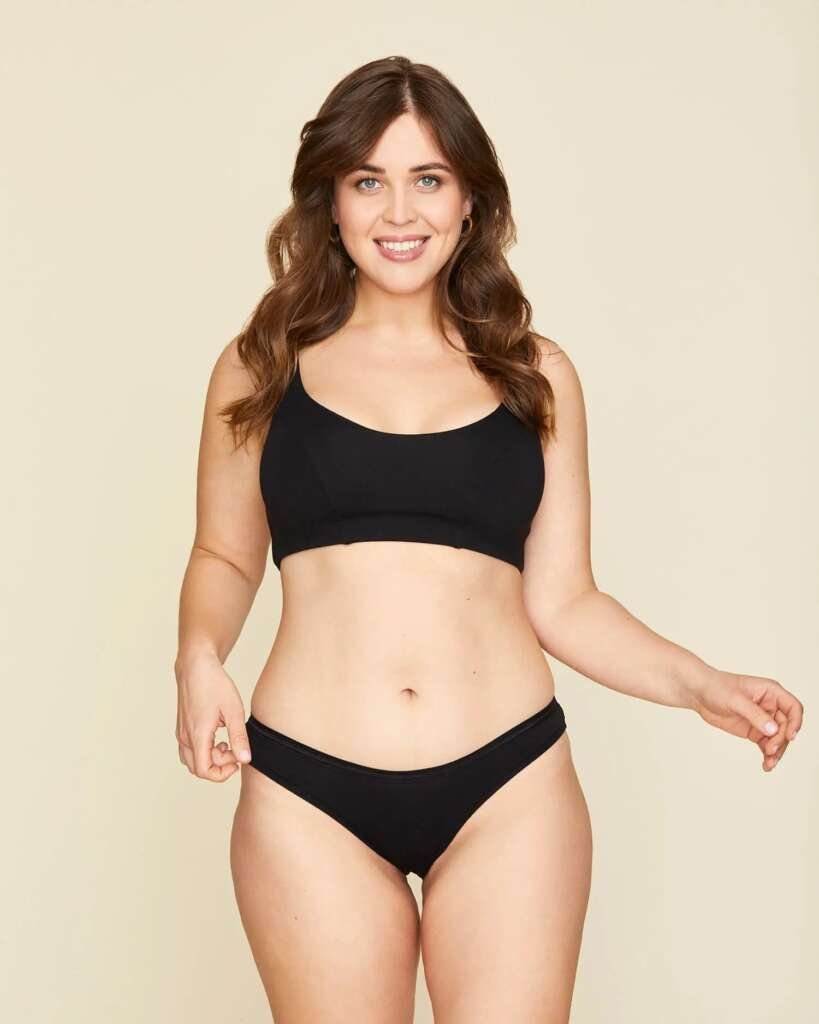Knickey’s Organic Underwear Are Made For Recycling

Share This Article
Chatting with the Co-Founder of Knickey, an organic women’s underwear brand, made to be worn and recycled.
| All products featured on The Wellness Feed are independently selected by our editors for its environmental and ethical impact. However, when you buy something through our retail links, we may earn an affiliate commission. |
Organic shouldn’t be a luxury reserved for pieces of clothing we wear occasionally. We know the importance and health benefits of eating organic foods or using natural cleaning products. But, when it comes to fashion why is it that wearing highly-processed clothing laden with additives and preservatives is still considered normal? As Cayla O’Connell Davis, co-founder of the women’s organic cotton underwear brand Knickey explains, “Most of our clothing is plastic. That’s derived from crude oil. And, they won’t ever go away.”
Click to read more…
Even when clothing is cotton, less than 5% of the cotton we wear is organic and that means a lot of chemicals and additives are close to our skin. A few years ago, Cayla decided to launch a line or organic women’s underwear that are meant to be recycled. “If we’re going to make real change we have to do it with everyday pieces,” Cayla explains about her decision to launch into the intimates space. “Undies is a good place to start. And, if we can start your day with a sustainable garment that’s moving the needle on sustainability that’s having a big impact on the industry.”

Non-Toxic Should Be The Norm
“Your skin is an absorptive organ. It’s covered in pores. We want to make the cleanest garments to offer the safest garments we can,” Cayla says. There is a certified organic cotton seal on each pair of Knickey panties showing that the crop was grown using only organic-approved fertilizers, herbicides, and pesticides sourced from plants. When it comes to certifying that a piece of clothing is organic and non-toxic Cayla states that, “it goes all the way back to the cotton and how it’s grown. It should not be treated with chemicals.” Currently, conventional cotton accounts for 25% of the world’s use of insecticides. Crops are sprayed with herbicides, fertilizers, and pesticides that can cause health issues for the farmers and the wearer.
Buzzword Breakdown: What Makes Organic Cotton So Good For The Earth?
Click to read more…
Next, comes the processing. Cayla ensures that the cotton materials used in Knickey’s women’s organic cotton underwear are OkeoTex certified. The organization is one of the world’s most trusted labels for textiles that have been tested for harmful substances. “OkeoTex prohibits the use of toxic chemicals in raw materials,” Cayla explains that using OkeoTex materials just makes sense. “Ifb you could preclude bad things, then why wouldn’t you?” Around 8,000 chemicals are used to turn raw materials into textiles. Some are phthalates, a well-known endocrine disruptor. Others are azo dyes that can cause severe skin irritations.

Yes… You Can Feel The Organic Difference
When I received my pair of Knickey’s organic women’s underwear I was impressed by the simple cardboard box and lack of plastic. No plastic mailer. No plastic tape. The peachy-pink cardboard box was recyclable, but pretty and petite enough that it could be reusable.
“First and foremost we want to make a great pair of underwear,” Cayla says. “But, it’s a value add that it’s a sustainable garment.” When it came time to slip on a pair of the undies, I was skeptical that they could feel any different than my regular sets. Yet, and I say this as a woman who is loyal to my Italian-lace trimmed pantie sets, I could feel the difference. The cotton is incredibly soft; even softer than some silk sets that I’ve tried. The elastic is minimal and doesn’t dig in while keeping your panties in place in a way that allows you to almost forget that you’re wearing a pair of underwear at all. As a female who spends time de-wiring my bras, comfort is queen. So, the fact that they’re organic and sustainable is an definite positive bonus.

Here’s Your Sustainable Receipt
“Greenwashing is a dirty word. We really try to provide citations and footnotes on the how and why.” One of the big things that Cayla and her team are working on is their annual impact report where they can transparently share Knickey’s sustainable initiatives and goals. Some of these include a Greenhouse Gas Assessment where emissions have been looked at across their supply chain from the organic cotton farm to the facilities where undies are recycled.
Other noteworthy initiatives include Knickey’s manufacturing partners. One has been awarded the Carbon Neutral Gold Standard by One Carbon World for achieving 100% carbon neutrality. Other impacts include how each pair of organic women’s underwear is made- by Fair Trade certified factories in India and are close to the organic farms where the cotton is grown.

Why Don’t We Recycle More?
“What happens after a customer uses it? As a company we want to take a responsibility for our product,” Cayla says. Circular design and the end-of-life of a product have become the new conversations in fashion design. “The larger issue is how much textile waste there is in the world. 90% of clothing could be recycled,” Cayla explains. But, according to the Environmental Protection Agency less than 15% of textiles are recycled. That means that landfills in the U.S alone receive a whopping 11 million+ tons of textile waste yearly. “A lot of people do donate or recycle or mend, but you really can’t do that for underwear.” Cayla has looked to solve this issue with a recycling program. Not only does each pair of Knickeys degrade naturally because there are not toxic chemicals or dyes, but you can actually send in your old knickers for a chance to have them recycled.
The way Knickey’s recycling program works is simple. You’ll receive a pre-paid label to send in up to 200 pairs of underwear. And, there’s a special incentive too. “Once it’s tracking you can receive a free pair with your next purchase,” Cayla explains. And, once your old knickers are received they’ll go with to a nonprofit that Knickey works with that places the textiles into a machine that breaks the materials into fabric pulp. The end result is a textile that is made into insulation or padding for furniture.

1 Comment